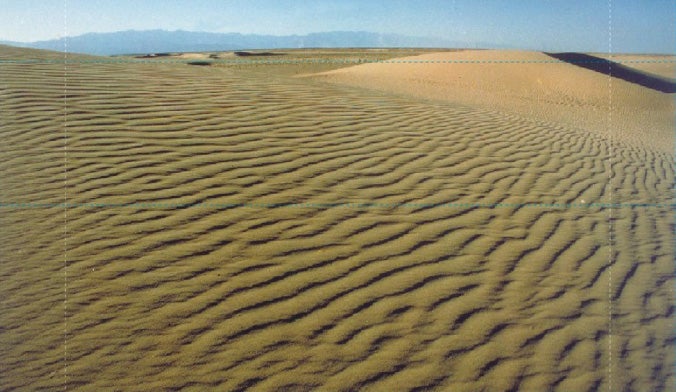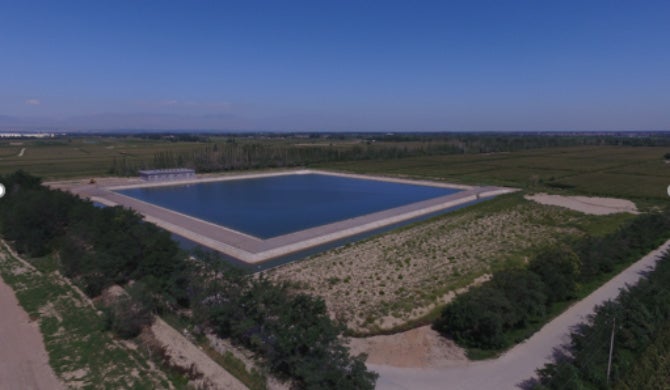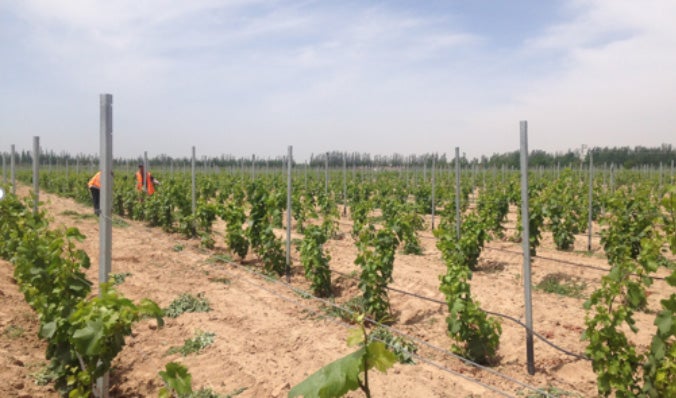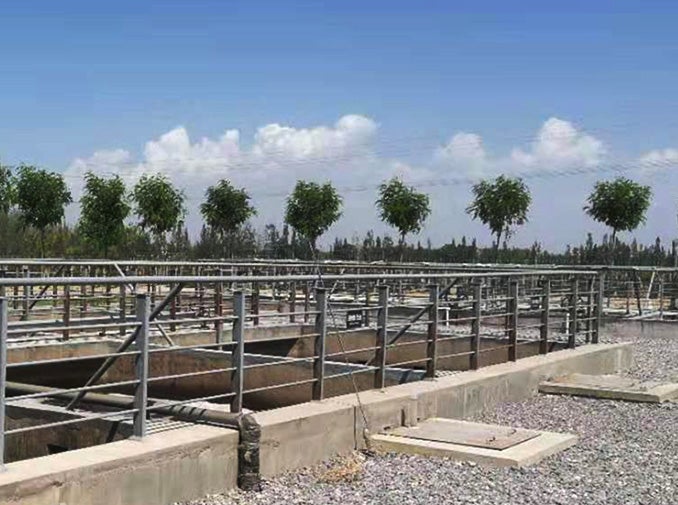Respect for water
Water is vital for a vineyard and winery. Without water, the soil condition of the high-altitude sandy desert will quickly return to its natural state. But water is a finite resource that should be used judiciously. At Pernod Ricard Helan Mountain, we are conscious of the value of water and spare no effort to protect this resource.
 1997 Location of the Winery
1997 Location of the Winery
 2017 The winery photographed from the same location.
2017 The winery photographed from the same location.
Minimising water usage
The annual rainfall at Ningxia is a mere 200 mm (compared to over 920 mm in Bordeaux). Irrigation is essential. Instead of furrow or flood irrigation, we adopt drip irrigation across the 400 hectares of land. We do not need to water every row of vine every month, but during the growth season, the drip irrigation system hanging on the vines will carefully drip irrigate the vines every week. The transition from flood irrigation to drip irrigation has reduced water usage by 70% per hectare. The drip irrigation system also gives us better control of grape growing and yields better quality grapes for making great wines.
 Drip irrigating seedlings at Helan Mountain
Drip irrigating seedlings at Helan Mountain
Reuse and Recycle
A wastewater treatment system is a key component for any winery. One of the key elements of our redevelopment was introducing a state-of-the-art water treatment system to replace the evaporation tank. Waste water (from washing containers and equipment to keep the winery clean) may contain cleaning agents that affect the water’s pH level. There is usually a high level of organic matters in yeast and grape juice. After professional processing however, it can be reused for watering the trees in the vineyard and reduce the reliance on the precious water for irrigating the vines.
 The wastewater treatment installation at Pernod Ricard Helan Mountain
The wastewater treatment installation at Pernod Ricard Helan Mountain



